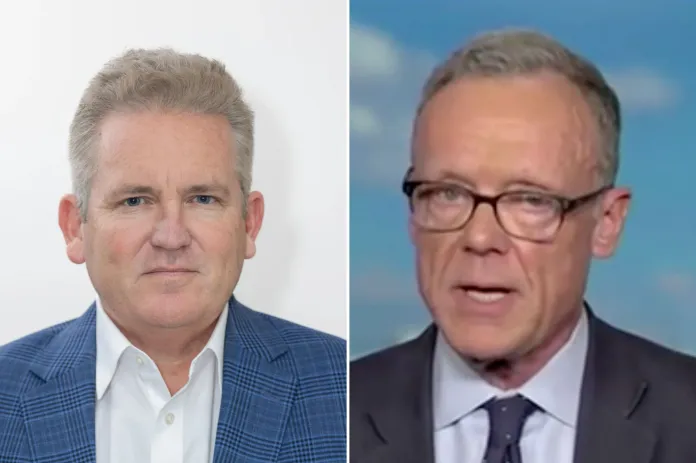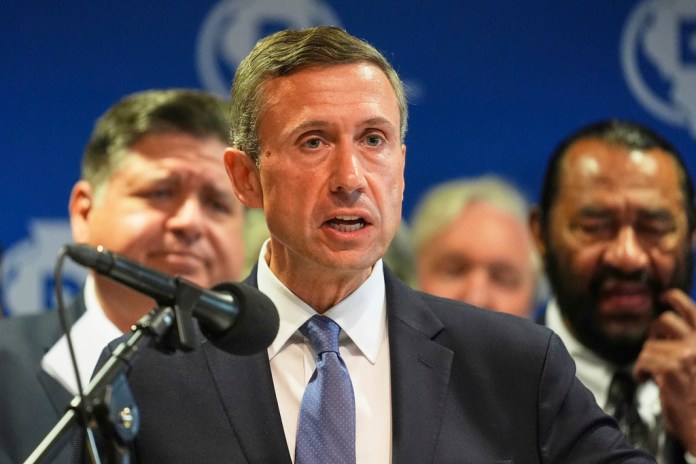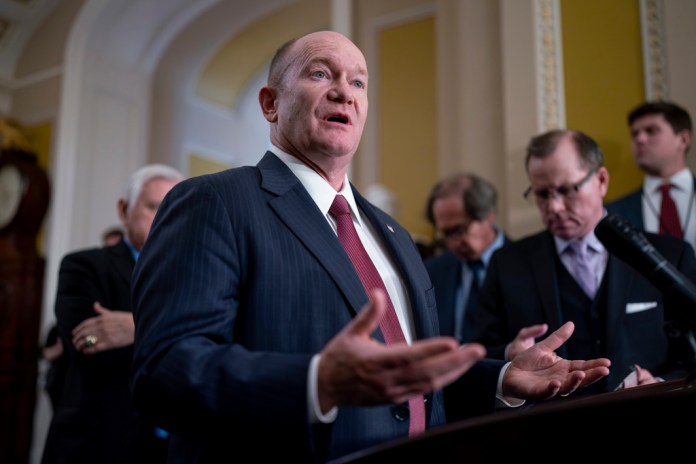Four global elections to watch in 2025 – Washington Examiner
The article discusses four significant global elections scheduled for 2025 that could shape international relations and political landscapes in their respective countries.
1. **Germany**: Following the collapse of Chancellor Olaf Schultz’s coalition government, new elections are set for February 23, 2025. The center-right Christian Democratic union (CDU) currently leads in polls, while the far-right Option für Deutschland (AfD) party has gained significant traction, becoming the second-largest party. The potential for an AfD rise could challenge conventional governing coalitions, despite mainstream parties’ reluctance to partner with them.
2. **canada**: Parliamentary elections must be held by October 20, 2025, amid discontent with Prime Minister Justin Trudeau’s Liberal Party, whose approval ratings have plummeted. With Trudeau resigning, a leadership race is underway, while the Conservative Party, led by Pierre Poilievre, shows strong polling. The next government will face challenges regarding trade relations with the U.S., notably with threats from Donald Trump regarding tariffs on Canadian imports.
3. **Australia**: Elections are anticipated in May 2025, where Prime Minister Anthony Albanese of the Labor Party will face a coalition of Liberal and National Parties. Polling has shifted,and economic concerns,such as housing and healthcare,are primary voter issues. the outcome could also impact Australia’s strategic relations with the U.S.and China, particularly as opposition leader Peter Dutton may adopt a more pro-U.S. stance.
4. **Other Global Contexts**: The article also highlights that these elections will not only impact domestic policies but may also influence each country’s stance towards the United States under the potential new leadership of Donald trump following his electoral win.
the elections in these four countries could define their future political trajectories and international alignments amidst shifting global dynamics.
Four global elections to watch in 2025
While the United States’s most important election in years concluded last year, 2025 will see several country-defining elections take place around the world.
With President-elect Donald Trump taking office, the elections will decide each country’s stance toward the United States, and their political trajectories in general. Several are close U.S. allies.
Here are the four most important global elections of 2025:
Germany
Germany has been run by the so-called traffic light coalition of the Social Democrats (SPD), Free Democratic Party (FDP), and the Greens since 2021, led by SPD Chancellor Olaf Schultz. A rupture between the SPD and pro-business FDP triggered a collapse of the government in December when Schultz failed a no-confidence vote. New elections are being held on Feb. 23.
Schultz has ruled over Germany during some of its most tumultuous years in modern history, dominated by the revival of its military after the Russian invasion of Ukraine, which occurred just months after he took office. He is also the first chancellor since the 16-year-long rule of Angela Merkel. Polls indicate that he will be passing the torch to someone else next month.
According to polling analysis from the Financial Times, the center-right Christian Democratic Union currently leads in the polls, at over 30%. The SPD has plummeted to third place with 15.7%, and the Greens are following at 13.5%. The FDP has fared even worse, currently polling below the 5% threshold needed to enter the Bundestag, along with the left-wing Linke Party.
The talk of German politics, however, is the ascendant Alternative fur Deutschland (AfD) Party, a right-wing anti-immigration party that has grown to the second-largest party in Germany at around 20% of the vote.
Though every mainstream party has pledged not to enter a coalition with them, keeping them out of government, the party has grown into a force to be reckoned with. It won its first major election in Thuringia in September and came in a close second in Saxony.
Its fortunes got another major boost in January when it won the backing of Tesla CEO Elon Musk, who recently hosted an X space with AfD Chancellor nominee Alice Weidel. Musk could exert influence on Trump to push the German government to ease up on the party.
While the AfD is unlikely to enter the government, February could see it win its greatest share of the vote yet, signaling that it isn’t a fringe party. The greater the share of the vote it takes, furthermore, the more fragile any governing coalition would be.
The most likely coalition is a Grand Coalition between the CDU and SPD, which governed Germany for most of the past 20 years.
The likely next Chancellor of Germany, Friedrich Merz, has been openly critical of Trump in the past, particularly in areas of trade and regarding Russia.
Canada
Canada must hold parliamentary elections on or before Oct. 20. The results will decide whether the Liberal Party, which has ruled for nearly a decade, will be unseated. Current polls indicate that it will.
Prime Minister Justin Trudeau’s approval ratings have been underwater since January 2021, but escalated into a nosedive in 2023, as public frustrations over a stagnating economy, mass immigration, and rising housing costs grew. After intense intraparty pressure, he announced his resignation as Prime Minister and head of the party on Jan. 6.
The current leadership race to be the Liberal prime minister candidate is dominated by former Bank of Canada and Bank of England Governor Mark Carney and former deputy prime minister Chrystia Freeland, who resigned last month. Whoever wins will have just months to rally a party that is currently polling at an average of 21.5% — less than half the polling of the Conservative Party, at 44.5%.
The New Democratic Party, led by Jagmeet Singh, is polling slightly behind the Liberals at 18.1%. They supported Trudeau’s government until withdrawing support last year.
The Conservatives are led by Pierre Poilievre, a populist described by some analysts as a Trump-like figure. However, the contours of Canadian politics make the two quite different, with Poilievre rarely touching on most social issues, instead focusing primarily on economics and cost of living issues.
Despite the comparisons between the two, Poilievre has clashed with Trump, taking offense to his threats to make Canada a “51st state.”
Whoever inherits the premiership will have to face an enraged Trump, who has threatened to slap 25% tariffs on all imported goods from Canada. Trudeau’s government has pledged retaliatory measures, including the halting of energy exports and critical materials, as well as tariffs on American imports.
Australia
Australia must hold an election sometime this year, with the expected date being sometime in May. It will pit incumbent Prime Minister Anthony Albanese of the Labor Party against a coalition of the Liberal and National Parties.
After holding an 11-point lead in polling in January 2023, Labor plummeted to a tie with the Liberal-National coalition in November of the same year, according to two-party preferred support polls. The coalition now leads by five points.
The election is centered on healthcare, the economy, and housing. Among young voters, the cost of living was the most pressing concern by a long shot, with Mission Australia’s Youth Survey Report 2024 finding 56% of respondents giving it as their top concern.
Though not the center of the electoral debate, perhaps the biggest impact of the election concerns Australia’s strategic position in the Pacific and its relationship with the U.S. and China. Albanese oversaw a warming of relations with Beijing, at a critical time when the U.S. sought to do everything in its power to drive back Chinese influence in the South Pacific.
Opposition leader Peter Dutton has drawn comparisons with Trump, using much of the same rhetoric and holding many of the same positions. A Liberal-National Party government led by him would be almost guaranteed to enjoy friendlier relations than Albanese’s Labor government.
Though Albanese was one of the first world leaders to congratulate Trump on his November victory, several sore points will likely rear their heads. Before his election, Trump voiced his disapproval with Ambassador Kevin Rudd, after being made aware of several disparaging X posts made in the past. However, the two have since made direct contact, and Rudd is expected to attempt Trump’s inauguration.
Ecuador
President Daniel Noboa is seeking election to his first full term in the February general elections, having come to power in a snap election after the resignation of his predecessor.
Ecuador has turned from a relatively peaceful nation into a warzone in the past few years, becoming the front line in the Latin American drug trade. Gang violence escalated into an explosion of murders and political assassinations, leading to Noboa declaring an “internal armed conflict.”
The crisis began after a leading drug lord, Adolfo Macias, escaped an overcrowded prison in January 2024 following an announcement from the government that high-profile convicts would be moved to maximum security prisons. Noboa declared a 60-day state of emergency the following day, empowering the police and military to restore order forcefully.
In response, drug cartels around the country launched a campaign of bombings, kidnappings, shootings, and prison uprisings. Another gang leader, Fabricio Colon Pico, escaped from prison days later. Noboa has since expanded security operations through a referendum.
Noboa currently leads in the polls, followed by Christian socialist Citizen Revolution’s Luisa González, controversial businessman and alleged mercenary Jean Topic, and left-wing indigenist leader Leonidas Iza.
González enjoys the backing of the influential exiled former President Rafael Correa. Like her backer, González subscribes to a unique blend of Christian socialism, broadly seen as left-wing economically and right-wing socially — the opposite of Noboa.
Topic has sought to present himself as a figure similar to Salvadoran President Nayyib Bukele, aiming to crush the country’s crippling gang problem with similarly harsh measures.
With Noboa and Gonzalez in the lead, the election has taken on an angle of critical importance to the U.S. Noboa, born and educated in the U.S., has sought close ties with Washington.
Noboa has sought U.S. support in his war against gangs, securing nearly $100 million in aid last year. He has vowed to introduce a Constitutional amendment to once again allow foreign bases on Ecuadoran soil, something banned in 2008, an obvious overture toward the U.S.
Gonzalez, on the other hand, shares her mentor’s skepticism towards the U.S., and would likely use the presidency to curb its influence. A Gonzalez victory would probably see a revival of Correa’s hostile policies towards U.S. influence, drawing the ire of Trump.
" Conservative News Daily does not always share or support the views and opinions expressed here; they are just those of the writer."




